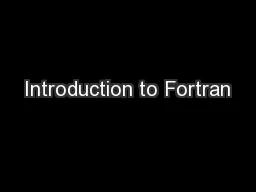PPT-Automating Builds with Makefiles
Author : unisoftsm | Published Date : 2020-06-23
C Programming in a Linux Environment Compiling Your Program coordc includeltstdiohgt double getDoublechar double double double distdouble x double y int main
Presentation Embed Code
Download Presentation
Download Presentation The PPT/PDF document "Automating Builds with Makefiles" is the property of its rightful owner. Permission is granted to download and print the materials on this website for personal, non-commercial use only, and to display it on your personal computer provided you do not modify the materials and that you retain all copyright notices contained in the materials. By downloading content from our website, you accept the terms of this agreement.
Automating Builds with Makefiles: Transcript
Download Rules Of Document
"Automating Builds with Makefiles"The content belongs to its owner. You may download and print it for personal use, without modification, and keep all copyright notices. By downloading, you agree to these terms.
Related Documents














